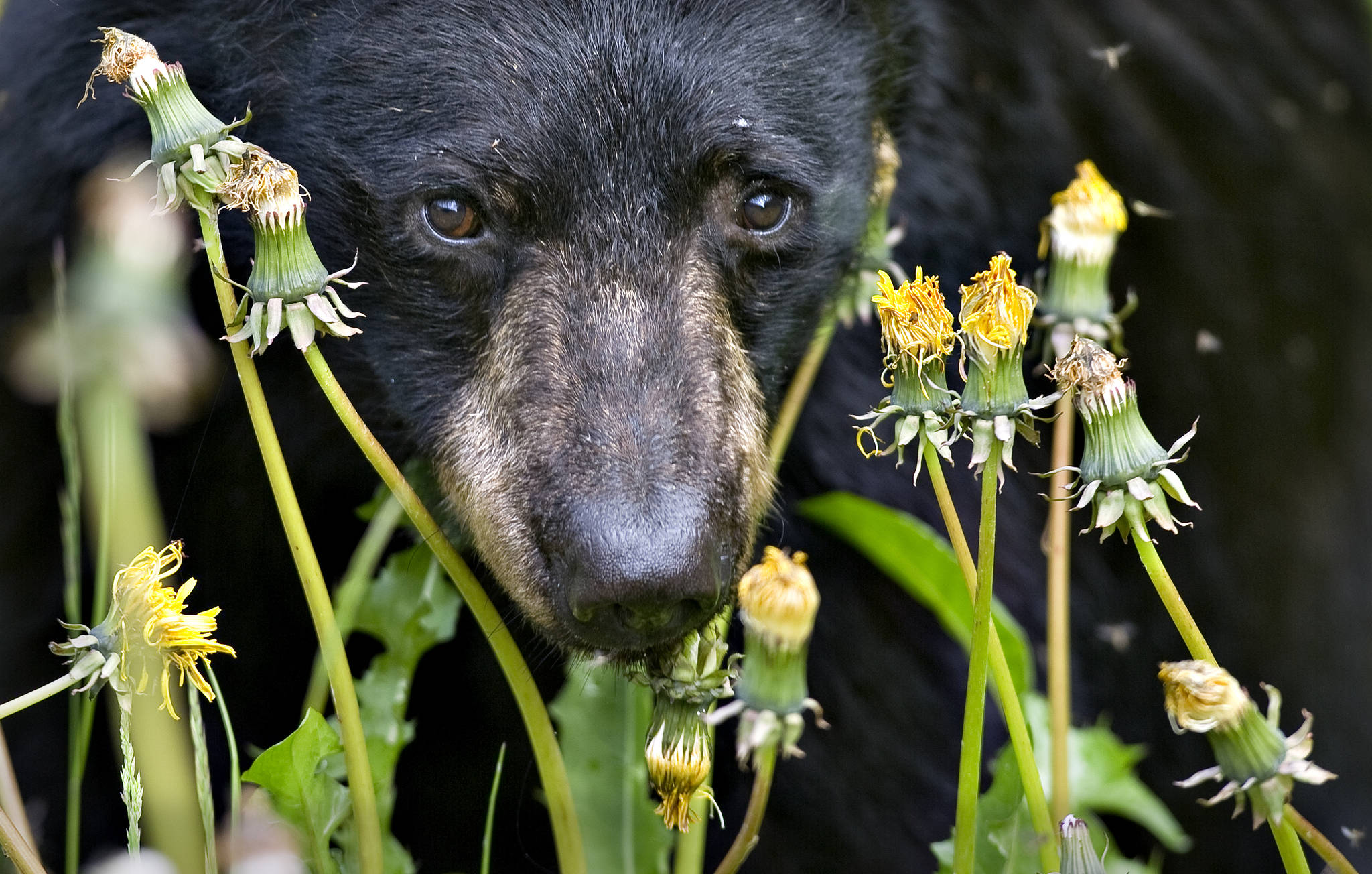As the seasons warm, many of us may have been hearing familiar nocturnal noises as bears return to Juneau after their long hibernation.
“Bears are omnivores so they eat most about everything, and most of our trash is left over food waste,” said Roy Churchwell, the Alaska Department of Fish and Game’s area biologist for Juneau in a phone interview. “Sometimes when there isn’t fish, and there isn’t new green vegetation and there aren’t berries, they turn to trash when their natural food supply is low.”
Bears usually turn to rooting around in the garbage bins, compost piles and birdfeeders of homes and neighborhoods when food elsewhere is scarce, such as when warm waters cause mass salmon die-offs.
“In the most normal years, it’s not that common. There are certain years when things come to a head when there aren’t as many fish or the berry crop fails and we get more bears in town,” Churchwell said. “It’s a little bit too early to say for sure. Predicted fish runs are supposed to be lower and berries haven’t started year.”
The bear population around Juneau is tricky to quantify since they typically live in dense, remote forests, which are hard to get in and out of for survey purposes, Churchwell said. Juneau’s bears are primarily black bears, though there are a spattering of brown bears at the end of the road, Churchwell said.
There are simple steps to take to avoid making a new and irritated acquaintance.
“If you have a bear issue, if you can, just leave it alone and let it do its thing,” Churchwell said. “If there are some kind of attractants bringing it into the area — garbage or unprotected livestock such as chicken, birdfeeders, smelly compost pile – if you clean those up, you should be fine.”
If the 400-pound issue persists, however, Churchwell says to immediately contact the police.
“You want to leave it alone and let it do its thing. That’s best,” Churchwell said. “If it becomes a life-endangerment situation, call JPD immediately.”
Know the rules
The City and Borough of Juneau has specific guidelines pertaining to the storage of garbage and placing trash cans on the curb.
Cans must not be placed on the curb before 4 a.m. on the collection day. Outside of that, cans must be placed in a bear-hardened enclose like a garage or a hutch that can’t be forced up by kicking, scratching, or clawing. Cans must have fall-resistant lids, and if your garbage attracts bears and you fail to take steps, fines can be levied, according to the CBJ bear information website.
• Contact reporter Michael S. Lockett at 757.621.1197 or mlockett@juneauempire.com.

